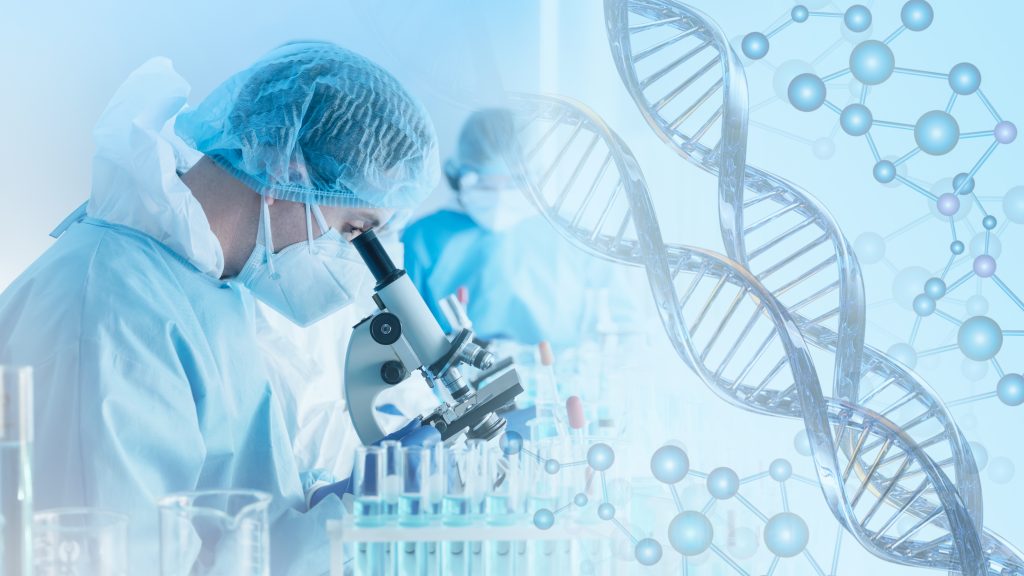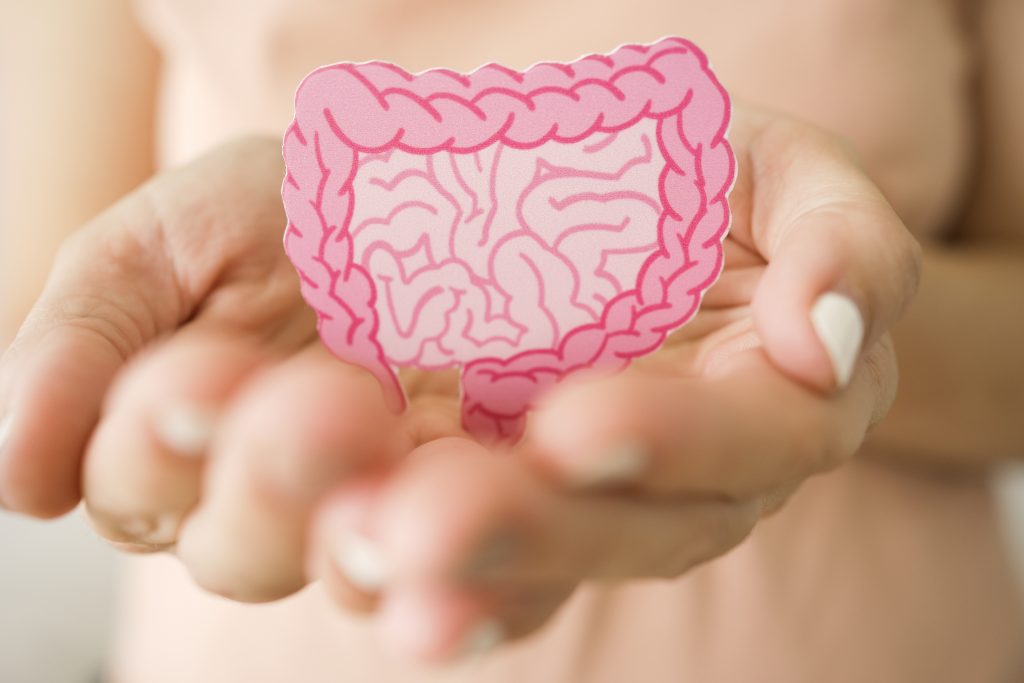Fried foods are a popular indulgence for many people, but their potential health risks cannot be understated. In recent years, scientific research has shed light on the link between consuming fried foods and an increased risk of developing cancer. It is crucial to understand the negative consequences of dietary choices and take proactive steps towards maintaining good health.
Key Takeaways:
- Fried foods have been linked to an increased risk of developing cancer.
- Regular consumption of fried foods can have a negative impact on overall health, including weight gain and heart disease.
- Harmful compounds formed during the frying process, such as acrylamide and advanced glycation end products (AGEs), can contribute to cancer development.
Understanding the Link between Fried Foods and Cancer
Fried foods have become a staple in many diets around the world, especially in Western countries. From French fries to fried chicken, these foods are often convenient, affordable, and satisfying. However, research has suggested that consuming fried foods regularly may increase the risk of developing cancer.
Several studies have investigated the potential relationship between fried foods and cancer. One study published in the British Medical Journal found that a high intake of fried foods was associated with an increased risk of prostate cancer. Another study published in the Journal of the National Cancer Institute found that women who regularly consumed fried foods had a higher risk of developing breast cancer.
The possible mechanisms by which fried foods may contribute to cancer development are still being explored. One theory is that when food is heated to high temperatures, harmful compounds such as acrylamide and advanced glycation end products (AGEs) are formed. These compounds are known to be carcinogenic and may cause DNA damage and inflammation in the body.
Understanding the Link between Fried Foods and Cancer
Further research is needed to fully understand the link between fried foods and cancer. However, the evidence so far suggests that excessive consumption of fried foods may increase the risk of developing certain types of cancer. Therefore, it is important to be aware of the potential health risks associated with consuming these foods and to moderate their intake accordingly.
Health Effects of Fried Foods
Consuming fried foods regularly can have a negative impact on overall health. In addition to an increased risk of cancer, these foods can also lead to weight gain, heart disease, and other chronic illnesses.
Fried foods are typically high in calories, unhealthy fats, and sodium. These factors can contribute to weight gain and obesity, which are major risk factors for several types of cancer, including breast, colon, and prostate cancer.
Moreover, frequent consumption of fried foods can lead to an accumulation of unhealthy cholesterol levels in the blood, which can increase the risk of heart disease and stroke.
Additionally, the process of frying food can create harmful compounds, such as acrylamide and advanced glycation end products (AGEs). These compounds have been linked to an increased risk of cancer and other chronic diseases.
Therefore, it is important to limit the consumption of fried foods and opt for healthier cooking methods, such as baking, grilling, or steaming. Eating a balanced diet rich in fruits, vegetables, whole grains, and lean proteins can help promote overall health and reduce the risk of chronic diseases.
Cancer Risks from Eating Fried Foods
Research has found that consuming fried foods on a regular basis can increase the risk of developing certain types of cancer. The high heat used in frying can cause harmful compounds, such as acrylamide and advanced glycation end products (AGEs), to form in the food. These compounds have been linked to an increased risk of cancer.
In particular, there is evidence to suggest that consuming fried foods may increase the risk of developing breast, lung, prostate, and pancreatic cancers. One study found that women who ate fried chicken at least once a day had a 13% higher risk of developing breast cancer compared to those who did not consume fried foods.
It is important to note that the risk of developing cancer from eating fried foods is not limited to just these types of cancer, and the risk can vary based on the frequency and amount of fried food consumption.
Health Dangers of Fried Foods
Fried foods are a staple of many diets around the world, but they come with a host of health risks. In addition to contributing to weight gain and heart disease, consuming fried foods has been linked to an increased risk of cancer.
During the frying process, harmful compounds such as acrylamide and advanced glycation end products (AGEs) can form. Both of these compounds have been linked to an increased risk of cancer. Acrylamide forms when starchy foods are cooked at high temperatures, such as during frying. AGEs are formed when sugars and proteins in food react during high-temperature cooking methods.
Research has shown that a high intake of these compounds can increase cancer risk. Studies have found an association between acrylamide consumption and an increased risk of kidney, ovarian, and endometrial cancer, while AGEs have been linked to breast, prostate, and colorectal cancer.
It’s important to be aware of the potential health dangers of consuming fried foods and to limit their intake. Choosing alternative cooking methods, such as baking, roasting, or grilling, can help to reduce exposure to harmful compounds. Additionally, incorporating plenty of fresh fruits and vegetables into your diet can provide essential nutrients and antioxidants to support overall health and reduce cancer risk.
Holistic Treatment Modalities at the Cancer Center for Healing
At the Cancer Center for Healing located in Irvine, CA, patients have access to a wide range of holistic treatment modalities. Under the guidance of Dr. Leigh Erin Connealy, the center provides a comprehensive approach to cancer care, addressing not only physical health but also emotional and mental well-being.
Patients are encouraged to take an active role in their healing process, with personalized treatment plans designed to meet their individual needs. The center offers a variety of integrative therapies, including acupuncture, nutritional therapy, and mind-body techniques, to support conventional cancer treatments and promote overall well-being.
With its emphasis on holistic care, the Cancer Center for Healing provides patients with the tools they need to address underlying causes of illness and support the body’s natural healing mechanisms. By treating the whole person, not just the disease, the center helps patients achieve a greater sense of balance and vitality.
Comprehensive Cancer Care for All Types
The Cancer Center for Healing is dedicated to providing personalized, integrative cancer care to patients facing various types of cancer. Dr. Leigh Erin Connealy and her team of experts understand that each patient’s journey is unique and requires an individualized approach to care.
At the Cancer Center for Healing, patients can expect a comprehensive range of treatment options, including conventional therapies, integrative approaches, and supportive care services. Each patient’s treatment plan is tailored to address their specific needs and goals, while also considering their overall health and well-being.
Personalized Treatment Plans
Patients at the Cancer Center for Healing receive personalized treatment plans that are designed to optimize their outcomes and support their overall health. The team takes a whole-patient approach to care, incorporating various therapies and supportive services to address physical, emotional, and spiritual needs.
Each patient’s treatment plan is developed after a thorough evaluation of their medical history, current health status, and personal preferences. The team considers all aspects of the patient’s health, including nutrition, exercise habits, stress management, and other lifestyle factors that can impact their overall well-being.
Integrative Therapies
The Cancer Center for Healing offers a range of integrative therapies that can complement conventional cancer treatments. These include acupuncture, nutritional therapy, and mind-body techniques like meditation and yoga.
Integrative therapies help patients manage the physical and emotional side effects of cancer treatments, improve their quality of life, and support their natural healing mechanisms. They can also help patients maintain their overall health and well-being throughout the cancer care journey.
Supportive Care Services
The Cancer Center for Healing provides a comprehensive range of supportive care services to help patients manage the physical and emotional challenges of cancer treatment. These include pain management, nutritional counseling, and psychological support services.
The team at the Cancer Center for Healing understands that cancer care is more than just treating the disease. They focus on providing compassionate care and support that addresses the whole patient, including their emotional and spiritual needs.
Consultation
Patients and their loved ones can schedule a consultation at the Cancer Center for Healing by calling (949) 680-1880. The team is dedicated to helping patients make informed decisions about their cancer care and welcomes the opportunity to meet with new patients and discuss their treatment options.
It’s important to seek professional guidance when dealing with cancer, and the Cancer Center for Healing provides a compassionate and comprehensive approach to care that can help patients optimize their outcomes and improve their overall quality of life.
Consultation at the Cancer Center for Healing
If you or a loved one is facing a cancer diagnosis, seeking professional guidance is critical. The Cancer Center for Healing, located in Irvine, CA, offers comprehensive cancer care under the guidance of Dr. Leigh Erin Connealy.
To schedule a consultation with one of the experienced practitioners at the Cancer Center for Healing, please call (949) 680-1880. During your consultation, you can expect to receive personalized attention and support as you navigate your cancer journey.
The Importance of a Holistic Approach to Cancer Care
A holistic approach to cancer care encompasses more than just treating the physical symptoms of the disease. It recognizes the interconnectedness of the body, mind, and spirit, and the impact that emotional and psychological health can have on physical well-being.
By taking a holistic approach to cancer care, patients can address underlying causes of their illness, manage treatment side effects, and support the body’s natural healing mechanisms. A holistic approach can also help patients maintain a sense of control and promote a greater overall sense of well-being.
Integrative Therapies in Cancer Treatment
At the Cancer Center for Healing, patients have access to a range of integrative therapies that complement conventional cancer treatments. These therapies are designed to enhance the body’s natural healing mechanisms, improve quality of life, and address underlying causes of disease.
Acupuncture
Acupuncture is a form of traditional Chinese medicine that involves the insertion of thin needles into specific points on the body to balance energy flow. Studies have shown that acupuncture can help alleviate symptoms commonly associated with cancer and its treatments such as nausea, pain, and fatigue.
Nutritional Therapy
Nutritional therapy involves the use of diet and supplements to support the body’s immune system and overall health. A personalized nutrition plan can help patients manage side effects of treatment, improve energy levels, and promote healing.
Mind-Body Techniques
Mind-body techniques such as meditation, yoga, and breathing exercises can help reduce stress, anxiety, and depression, and improve overall well-being. These techniques have been shown to improve quality of life for cancer patients and support the body’s natural healing mechanisms.
Integrative therapies are just one aspect of the comprehensive cancer care provided at the Cancer Center for Healing. Patients receive personalized treatment plans that incorporate a range of modalities to address their unique needs and goals.
Supportive Care for Cancer Patients
Comprehensive cancer care involves more than just treating the disease itself. It also entails offering supportive care to help patients manage the physical, emotional, and practical challenges that can arise during treatment. At the Cancer Center for Healing, patients have access to a wide range of supportive care services designed to improve their quality of life and promote healing.
Some of the supportive care services available at the Cancer Center for Healing include:
| Service | Description |
|---|---|
| Acupuncture | Ancient Chinese therapy that involves inserting thin needles into specific points on the body to relieve pain and other symptoms. |
| Nutritional Therapy | A personalized approach to nutrition that takes into account the unique needs of each patient and aims to support their overall well-being. |
| Mind-Body Techniques | A variety of techniques that can help patients relax, reduce stress, and manage emotional challenges. |
| Massage Therapy | A hands-on therapy that can help relieve muscle tension, improve circulation, and promote relaxation. |
| Exercise Therapy | Guided exercise routines that are designed to improve physical fitness and overall well-being. |
Other supportive care services available at the Cancer Center for Healing include spiritual counseling, stress management techniques, and access to support groups. These services can help patients feel more supported and better able to cope with the challenges of cancer treatment.
Dr. Leigh Erin Connealy and her team are committed to providing comprehensive, patient-centered care to everyone who enters through the Cancer Center for Healing’s doors. If you or a loved one has been diagnosed with cancer and would like to learn more about our supportive care services, please don’t hesitate to contact us.
The Role of Nutrition in Cancer Prevention and Treatment
The relationship between nutrition and cancer has been an area of increasing interest and research in recent years. A healthy and balanced diet is a key component of a comprehensive cancer care plan, as nutrition plays a vital role in both cancer prevention and treatment.
Research has shown that certain dietary patterns and food choices may contribute to an increased risk of developing cancer. On the other hand, a diet rich in plant-based foods, healthy fats, and lean proteins has been associated with a lower risk of cancer and improved outcomes for cancer patients.
It is important for individuals to consume a variety of fruits and vegetables, whole grains, and lean protein sources. In addition, reducing consumption of processed and red meats, saturated and trans fats, and added sugars may help lower cancer risk.
For cancer patients, proper nutrition can help support the immune system, reduce treatment side effects, and improve overall quality of life. Consultation with a registered dietitian can provide individualized recommendations and strategies for incorporating healthy eating habits into daily life.
It is important to emphasize that nutrition is just one aspect of a comprehensive cancer care plan, and should be integrated with other treatment modalities under the guidance of a healthcare professional.
Lifestyle Factors and Cancer Risk
While consuming fried foods has been linked to an increased risk of developing certain types of cancer, it is important to recognize that it is not the sole factor influencing cancer risk. In fact, there are a variety of lifestyle choices that individuals can make to help reduce their risk of developing cancer.
Regular physical activity can help maintain a healthy weight and reduce the risk of several types of cancer. Additionally, limiting alcohol consumption and avoiding tobacco products can greatly decrease cancer risk.
It is also important to incorporate a healthy and balanced diet into one’s lifestyle. This includes consuming a variety of fruits, vegetables, whole grains, lean proteins, and healthy fats. Studies have shown that diets high in plant-based foods and low in processed and red meats may help reduce the risk of certain types of cancer.
Overall, taking a proactive approach to one’s lifestyle choices can greatly impact cancer risk. By making informed decisions and prioritizing overall well-being, individuals can reduce their risk of developing cancer and improve their overall quality of life.
Promoting Awareness and Education
It is crucial to promote awareness and education on the health risks associated with consuming fried foods and the potential link to cancer. Public health campaigns and initiatives can play a significant role in empowering individuals to make healthier dietary choices and reduce their risk of developing cancer.
According to the American Cancer Society, maintaining a healthy weight through diet and exercise is one of the most important strategies for reducing cancer risk. Educating the public on the negative health impacts of fried foods can encourage individuals to make healthier dietary choices and potentially lower their cancer risk.
In addition, promoting awareness and education on comprehensive cancer care options can help individuals facing cancer make informed decisions about their treatment and support. The Cancer Center for Healing offers integrative therapies and supportive care options to help patients manage treatment side effects, improve quality of life, and promote healing.
“Education is the most powerful weapon which you can use to change the world.” – Nelson Mandela
By promoting awareness and education, we can empower individuals to take control of their health and make informed decisions about their well-being. Together, we can work towards a healthier and more cancer-free future.
Advances in Cancer Research and Prevention
Research in cancer prevention and treatment has made incredible strides in recent years, with the potential to significantly reduce the prevalence of cancer in the future. One area of research that has gained increasing attention is the connection between diet and cancer risk.
Ongoing studies aim to understand the impact of different dietary factors on cancer development and explore potential interventions to reduce risk. For example, some studies suggest that consuming a diet rich in fruits and vegetables may be protective against certain types of cancer.
Additionally, research has identified specific compounds found in foods that may have carcinogenic effects and contribute to cancer development. With this knowledge, researchers can work towards developing novel methods to lower the amount of these compounds in our diets.
Efforts to promote public awareness and education around cancer prevention and healthy lifestyle habits have also been a focus of recent research. By empowering individuals with informed choices and encouraging healthier behaviors, we can work towards reducing the burden of cancer.
Conclusion
In conclusion, the consumption of fried foods has been linked to an increased risk of developing cancer, as well as negative effects on overall health. The Cancer Center for Healing, located in Irvine, CA, offers a holistic approach to cancer care that addresses the physical, emotional, and mental aspects of healing. Patients at the center benefit from personalized treatment plans, integrative therapies, and comprehensive supportive care.
It is essential to take a proactive approach to health by making informed dietary choices and seeking professional guidance if necessary. The Cancer Center for Healing provides consultation services to help patients explore their options and develop a comprehensive cancer care plan. By incorporating a healthy and balanced diet, leveraging integrative therapies, and promoting lifestyle factors that reduce cancer risk, patients can take control of their well-being and improve their quality of life.
FAQ
Q: What are the health risks associated with consuming fried foods?
A: Consuming fried foods can have negative effects on overall health, including weight gain, heart health issues, and an increased risk of developing chronic diseases.
Q: Is there a link between fried foods and cancer?
A: Scientific research has shown a potential connection between consuming fried foods and an increased risk of developing cancer. Studies have explored the mechanisms by which fried foods may contribute to cancer development.
Q: What are the specific types of cancer associated with eating fried foods?
A: Regular consumption of fried foods has been associated with an increased risk of developing various types of cancer. These include cancers of the colon, breast, pancreas, and prostate, among others.
Q: What are the health dangers of regularly consuming fried foods?
A: Fried foods can contain harmful compounds, such as acrylamide and advanced glycation end products (AGEs), which are formed during the frying process. These compounds have the potential to be carcinogenic and can pose health risks.
Q: Where can I find holistic treatment modalities for cancer?
A: The Cancer Center for Healing located in Irvine, CA, offers a holistic approach to cancer care. They prioritize addressing all aspects of a person’s well-being under the guidance of Dr. Leigh Erin Connealy.
Q: What types of comprehensive cancer care are available at the Cancer Center for Healing?
A: The Cancer Center for Healing provides personalized treatment plans, integrative therapies, and supportive care options for patients facing different types of cancer. They offer a comprehensive approach to cancer care.
Q: How can I schedule a consultation at the Cancer Center for Healing?
A: To schedule a consultation at the Cancer Center for Healing, please contact (949) 680-1880. Seeking professional guidance is important when dealing with cancer.
Q: Why is a holistic approach important in cancer care?
A: A holistic approach to cancer care takes into account physical, emotional, and mental well-being. It addresses underlying causes and supports the body’s natural healing mechanisms, providing comprehensive care.
Q: What integrative therapies are used in cancer treatment?
A: At the Cancer Center for Healing, various integrative therapies, such as acupuncture, nutritional therapy, and mind-body techniques, are used in conjunction with conventional cancer treatments to support patients’ well-being.
Q: What is the role of supportive care for cancer patients?
A: Comprehensive supportive care plays a crucial role in helping cancer patients manage treatment side effects, improve quality of life, and promote healing. The Cancer Center for Healing provides a range of services to support patients.
Q: How does nutrition impact cancer prevention and treatment?
A: Diet and nutrition play a significant role in cancer prevention and treatment. Incorporating a healthy and balanced diet into a comprehensive cancer care plan is essential for supporting overall well-being.
Q: What lifestyle factors contribute to cancer risk?
A: Beyond fried food consumption, various lifestyle factors can contribute to an increased risk of developing cancer. Maintaining a healthy lifestyle and making informed choices are important in reducing cancer risk.
Q: Why is promoting awareness and education about the health risks important?
A: Promoting awareness and education about the health risks associated with fried foods and cancer helps individuals make healthier dietary choices. Public health campaigns and initiatives play a vital role in empowering people to make informed decisions.
Q: What are the advances in cancer research and prevention?
A: Ongoing advancements in cancer research and prevention are leading to a better understanding of the relationship between diet and cancer. These advancements offer potential interventions and strategies to reduce cancer risk in the future.


















